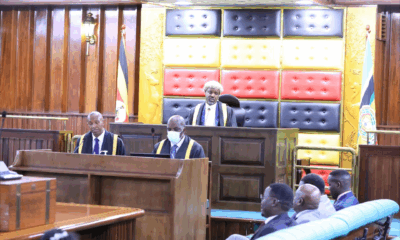Analysis
Isreal-Iran War: Gen Museveni Calls for “Principled Diplomacy” in Middle East, Outlining Mistakes by All Sides
President Yoweri Museveni of Uganda, also serving as the Chairman of the Non-Aligned Movement (NAM) until 2027, has publicly articulated Uganda’s long-held views on the “tragic situation” in the Middle East. Responding to a complaint from the Iranian Ambassador to Uganda regarding the nation’s silence, Museveni revealed a nuanced perspective, identifying what he considers “mistakes” by key actors: Iran, Israel, and Western powers, while emphasising a commitment to “principled diplomacy” over identity-based chauvinism.
In a detailed statement, President Museveni highlighted Uganda’s good relations with both Israel and Iran, as well as the United States, allowing for an impartial assessment. He underscored Uganda’s historical abhorrence of “chauvinism of identity (race, tribe, religion, etc) or gender (looking down upon women),” preferring to advocate for “the politics of interests, the legitimate interests of the stakeholders.”
Mistakes Identified by President Museveni:
1. Iranian Islamists: Museveni stated that he has consistently told Iranian leaders, including former President Mahmoud Ahmadinejad, that their rejection of Israel as a legitimate entity and viewing it as a “transplant” is a fundamental error. He asserted that “according to the Bible, Israel is part of that area,” tracing the Jewish historical claim to the land. He recounted the historical attempts by the Zionist Movement to return to their homeland after the Roman dispersion and notably dismissed the “absurdity” of Lord Balfour’s 1924 offer of Uganda as a Jewish homeland. Museveni affirmed the correctness of the United Nations’ decision to partition Palestine between the two peoples, criticising “some of the Arabs and Iranian Islamists to refuse to recognise that historical solution.”
2. The Israelis Themselves: Museveni equally chastised Israel for its refusal to implement the two-state solution. He challenged the notion that Palestinians do not belong in the region, drawing parallels to Idi Amin’s misguided logic in expelling Indians from Uganda. Museveni recalled discussions with Benzion Netanyahu, father of the current Israeli Prime Minister, questioning the fate of the biblical “7 tribes of Canaan” and the Philistines of Gaza. He argued that even if one assumes those ancient peoples perished, “some People migrated into the area when the Romans dispersed the Jews in AD 70. You cannot say that they do not belong there.”
3. Western Imperialists: President Museveni pointed to the 1953 CIA-backed overthrow of Iran’s democratically elected leader, Mohammad Mosaddegh, as a pivotal “mistake.” He argued that this intervention, driven by a desire to “steal the oil of Iran,” was instrumental in creating the deep resentment that fostered the rise of the current clerical leadership with their “mistaken positions.” Museveni expressed surprise at their apparent lack of knowledge of their own country’s ancient history, citing biblical references to “Persians and Medians.” He warned that “Fundamentalists of all types, Islamic or Christian, are a danger to humanity,” drawing parallels to the Christian Inquisition and the destruction of Sudan by Islamic fundamentalists.
4. Belief in External Force as a Solution: Finally, Museveni condemned the notion that “the use of force, especially force from outside the concerned Country, is a solution.” He argued that such interventions invariably “invite reactions that may even affect the interventionists,” citing historical examples such as the Papacy’s attempts to maintain Catholic hegemony in Europe, Metternich’s fight against French Revolution ideas, and the failed 14-power intervention in the Soviet Union. He concluded that “force should be for legitimate defence and not for aggression.”
President Museveni concluded his statement with an appeal for “principled diplomacy,” urging Iran and the Islamists to recognise Israel, and Israel should implement the two-state solution.” He ended on a spiritual note, calling upon “all of us” to “pray together and consult that Creator who cares for all of us without preference” for wisdom in navigating the path forward.
Uganda maintains diplomatic ties with both Israel and Iran, a position that allows President Museveni to offer a unique perspective on the long-standing conflict. His intervention, particularly as Chairman of the Non-Aligned Movement, is expected to resonate across the Global South as nations seek a path towards peace and stability in the volatile Middle East.
Comments



























